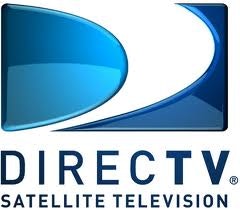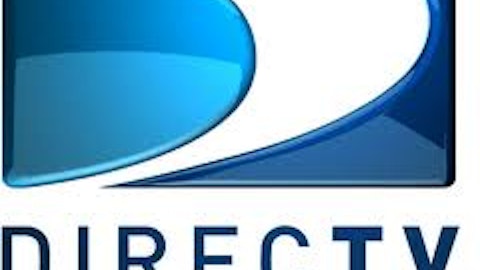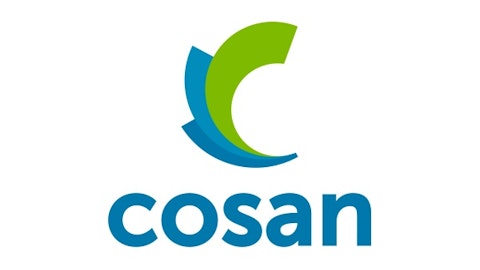Despite fears of cord-cutting, paid-TV providers could make great near-term investments. The industry looks to be on the verge of a massive era of consolidation, and that could benefit shareholders.
In particular, it’s possible that DIRECTV (NASDAQ:DTV) could merge with DISH Network Corp. (NASDAQ:DISH), while Time Warner Cable Inc (NYSE:TWC) could join up with Charter Communications, Inc. (NASDAQ:CHTR).
The trend towards cord-cutting

To date, this trend has yet to fully materialize — cable subscription numbers have remained relatively stable. Yet, among members of the millennial generation (18-34 years old), cord cutting is very real.
Analyst Craig Moffett expects cord cutting to accelerate in the coming years, although he isn’t worried too much about the cable industry. For the most part, cable companies are also broadband Internet providers, and so Moffett argues that they can make up for any lost cable revenue with higher Internet bills.
The creation of a sole satellite provider?
But for the satellite companies, that isn’t the case. Neither DIRECTV (NASDAQ:DTV) nor DISH Network Corp. (NASDAQ:DISH) are major players in the Internet service industry, instead relying almost entirely on paid TV.
DIRECTV (NASDAQ:DTV) admits as much in its 10-K, noting that almost the entirety of its income comes from its some 20 million satellite TV subscribers. DISH Network Corp. (NASDAQ:DISH) is largely the same, with its 14 million subscribers accounting for nearly all of the company’s revenue.
In addition to those 14 million subscribers, DISH Network Corp. (NASDAQ:DISH) also has some spectrum. Since 2008, DISH has spent over $3 billion on spectrum and spectrum-related assets, though has yet to monetize them.
It might have been able to do that if it was successful in acquiring Sprint Nextel Corporation (NYSE:S) and/or Clearwire Corporation (NASDAQ:CLWR). But with that deal falling through, perhaps DISH should consider a merger with DIRECTV (NASDAQ:DTV) instead.
At least, that’s what John Malone believes. The chairman of Liberty Media Corp (NASDAQ:LMCA) said as much in an interview on Thursday. Given Malone’s influence in the industry, it was enough to move shares of DIRECTV (NASDAQ:DTV) by 3%.
Malone notes that by combining, the two companies would be able to negotiate better deals for content. Both companies have struggled with content costs in recent years, with DirecTV temporarily losing Viacom, Inc. (NASDAQ:VIAB) shows while DISH Network fought a protracted battle with AMC.
Time Warner Cable and Charter Communications
Malone also wants Time Warner Cable Inc (NYSE:TWC) to merge with Charter Communications, Inc. (NASDAQ:CHTR). He’s reportedly working on a deal that would have Charter acquiring Time Warner.
Charter has about 4 million paying subscribers, while Time Warner Cable Inc (NYSE:TWC) has about 12 million. Combined, the company would still be far smaller than a merger of DISH Network Corp. (NASDAQ:DISH) and DirecTV, although unlike the satellite providers, it would still be a player in the Internet game.
Of course, if it came to fruition, Malone’s Charter/Time Warner Cable Inc (NYSE:TWC) entity would benefit from the merger of DirecTV and DISH Network.
The total paid TV market in the US is roughly 100 million. Comcast Corporation (NASDAQ:CMCSA) accounts for about 22 million, while a combined DirecTV/DISH would have around 34 million. A merged Charter/Time Warner Cable Inc (NYSE:TWC) would be the third biggest player at 16 million.
Analysts at Janney Capital estimate that paid TV content costs are poised to increase by 12.6% this year. But, if there’s a wave of consolidation, that might not be the case. The theoretical big three (DirecTV/DISH, Comcast, Time Warner/Charter) would control over 70% of the market — giving them a great deal of leverage over content providers.
Investing in the paid-TV industry
There could be a wave of consolidation coming to the paid TV industry. If that’s the case, the providers should be poised to benefit — fewer players in the industry would mean a great degree more leverage over content costs — costs that have spiraled out of control in recent years.
In the near-term, DirecTV and Time Warner Cable would probably benefit the most. Although Charter is the smaller company, any merger between the two would likely come from Charter buying out Time Warner. The same can be said for DirecTV/DISH Network — DISH has more money on its balance sheet and much less debt.
But even post consolidation, the combined entities could be attractive investments. Although they may carry a great degree of debt, they’d have much more pricing power.
The article The Paid TV Industry Could See a Wave of Mergers originally appeared on Fool.com and is written by Salvatore “Sam” Mattera.
Joe Kurtz has no position in any stocks mentioned. The Motley Fool recommends DirecTV. Salvatore “Sam” is a member of The Motley Fool Blog Network — entries represent the personal opinion of the blogger and are not formally edited.
Copyright © 1995 – 2013 The Motley Fool, LLC. All rights reserved. The Motley Fool has a disclosure policy.



